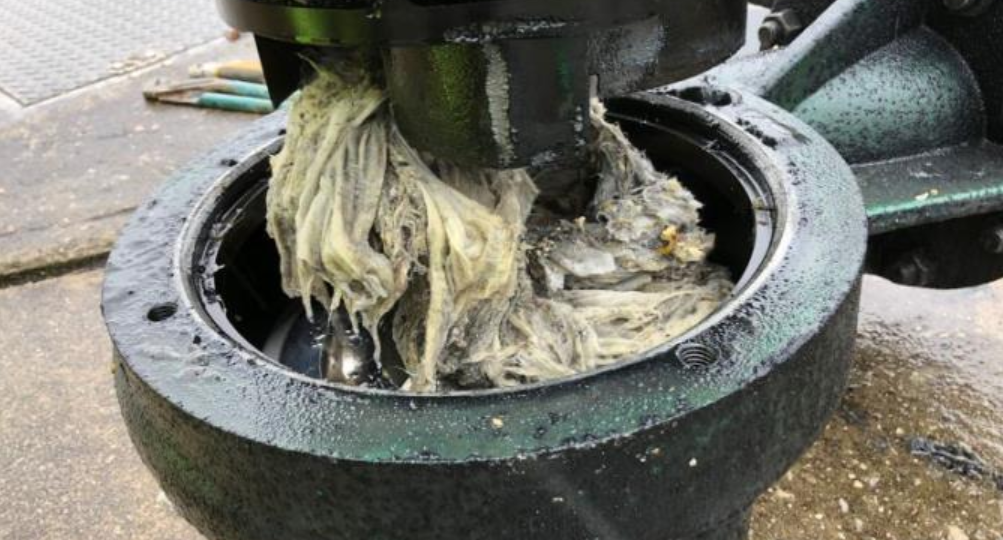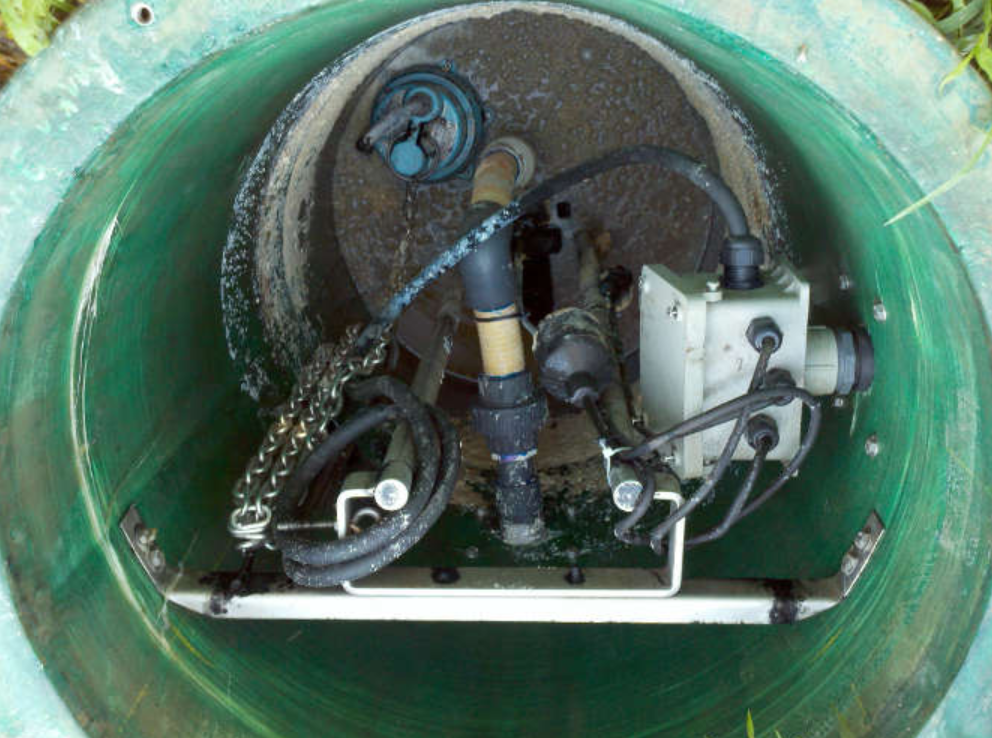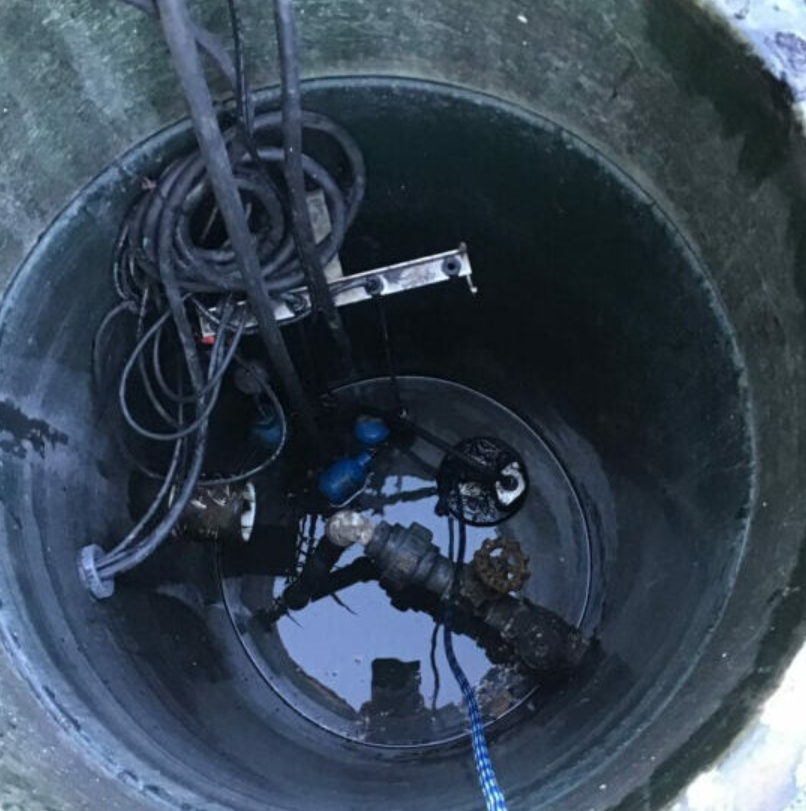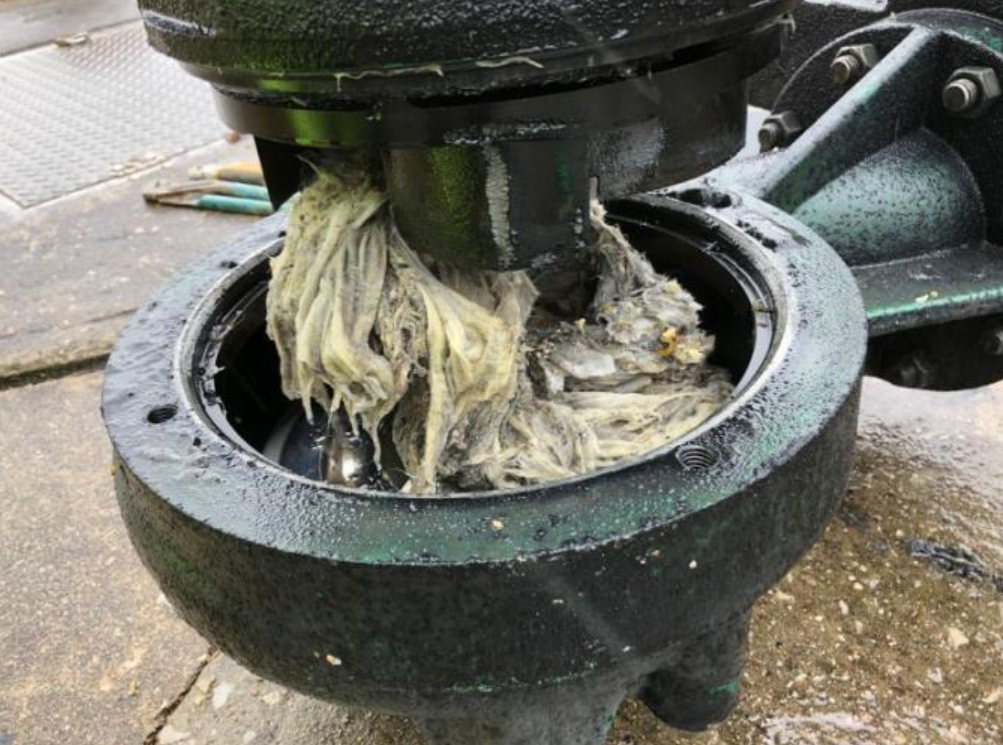
Introduction
Grinder pumps are a vital component of many homes and buildings. They work by grinding waste materials into small particles, making them easier to transport through pipes.
These pumps are commonly found in areas where the sewer main is located above the building’s plumbing fixtures, such as in basements or crawl spaces. However, like all mechanical devices, regular grinder pump maintenance is required in order to ensure they function properly.
Explanation of Grinder Pump + System
A grinder pump is a wastewater pumping system that grinds solids into small particles before pumping them out through a sewer system. It consists of a tank that collects waste from plumbing fixtures such as toilets, sinks, and washing machines. The collected wastewater flows into the tank where it is ground up by rotating blades.
The ground-up waste is then pumped out of the tank using pressure generated by the pump. This type of pump is particularly useful in areas where elevation or distance makes gravity flow impossible or impractical for removing wastewater from homes or buildings.
If you have more questions, check out our full Q&A Article about Residential Grinder Pump Systems
Importance of Grinder Pump Cleaning
Maintaining your grinder pump is essential for preventing blockages and backups in your plumbing system. The accumulation of debris can cause clogs that prevent water from flowing properly through your pipes, resulting in sewage backups that can be not only unpleasant but also potentially hazardous.
Regular cleaning of your grinder pump also helps extend its lifespan by reducing wear and tear on its components due to debris buildup. Neglecting grinder pump maintenance could result in costly grinder pump repair or even replacement down the line.
Understanding what a grinder pump is and why it needs regular cleaning can help you avoid expensive repairs while keeping your home’s plumbing system functioning smoothly and safely. In the following sections, we will discuss how to identify signs that your grinder pump needs cleaning, how to clean it yourself safely or seek professional help, and how to maintain it properly for optimal performance.

What is a Grinder Pump?
A grinder pump, also known as a sewage grinder pump, is a type of pump that grinds sewage solids and pumps wastewater from homes and businesses to sewer systems or septic tanks. These pumps are used to handle high volumes of wastewater and solid waste that cannot be handled by traditional gravity-fed plumbing systems.
Definition and Function
Grinder pumps consist of a tank, a motor, and impeller blades. The impeller blades grind the solid waste and pump it through pipes to the sewer system or septic tank.
The motor powers the impeller blades to move water out of the tank, which is then pumped through pipes to the main sewer line or septic tank. The function of a grinder pump is similar to that of a garbage disposal in your kitchen sink.
It grinds up solid waste into smaller particles, making it easier to transport through pipes. Grinder pumps are typically used in areas where gravity-fed sewers are not available due to terrain or other factors.
Types of Grinder Pumps
There are two main types of grinder pumps: standalone and residential/commercial.
- Standalone: Standalone grinder pumps are typically used in areas where municipal sewer lines are not available. They can be installed underground and connected directly to homes or businesses for on-site treatment before being pumped out into a larger holding tank or collection system.
- Residential/Commercial: Residential/commercial grinder pumps are designed for use in homes or small commercial buildings with multiple bathrooms or fixtures. They can be installed above ground or below ground, depending on space constraints and other factors. We have a full article on Residential Grinder Pump System Questions if you need to know more about them.
The type of grinder pump needed will depend on various factors such as the size of your property, the number of bathrooms or fixtures in your home or business, and the availability of municipal sewer lines. It is important to consult with a professional plumber or septic system specialist to determine which type of grinder pump is best suited for your needs.
Why is Grinder Pump Cleaning Important?

Preventing Blockages and Backups
One of the most significant reasons for cleaning your grinder pump regularly is to prevent blockages and backups. A blockage occurs when material builds up inside the impeller chamber, which can cause a complete stoppage of the grinder pump. When this happens, wastewater will begin to back up into your home or business, causing significant damage and posing health hazards.
Blocked pumps can also lead to clogged pipes, which can cause sewage to overflow into yards, streets, or nearby bodies of water. This situation is not only unpleasant but also dangerous since sewage contains many harmful pathogens that can cause severe illnesses.
Extending the Life of the Pump
Grinder pumps are designed to last for many years if they are adequately maintained. Regular cleaning ensures that your pump remains in good condition and continues working efficiently for an extended period. When maintenance is neglected, solids build up inside the impeller chamber causing excessive wear and tear on its components, leading to premature failure.
When this happens, you may need costly repairs or have to replace the entire unit. In addition to saving you money in repairs or replacements costs by extending its life span through regular cleaning, a well-maintained grinder pump also consumes less electricity while functioning optimally – another way regular cleaning helps save you money over time.
The Importance of Regular Maintenance for your Grinder Pump
To ensure that your grinder pump serves you well over time it’s essential you keep it clean by conducting regular maintenance. An adequate schedule should be established based on usage levels and manufacturer recommendations. Neglecting regular maintenance could lead to blockages in pipes leading from your home or business resulting in backups and foul odors from wet areas such as basements or crawl spaces where wastewater has accumulated.
By ensuring that pipes remain clear through regular inspection & cleaning, you avoid costly repairs and replacements of pipes that have been damaged by blockages or backups. Moreover, preventative maintenance can address potential problems before they become too severe.
Signs that Your Grinder Pump Needs Cleaning

Strange Noises or Odors
One of the first signs that your grinder pump needs cleaning is strange noises or odors coming from the pump or surrounding area. A properly working grinder pump should be relatively quiet and not produce any foul odors. If you hear odd noises, such as grinding or clanging sounds, it may indicate that there are obstructions in the pump that need to be removed.
These noises may also mean that the pump is running inefficiently and could be using more energy than necessary. Foul odors are another indication that you need to clean your grinder pump.
When wastewater does not flow freely through the system, it can create a buildup of bacteria and other microorganisms, leading to unpleasant smells emanating from your plumbing system. If these smells become noticeable, it’s important to have a professional inspect and clean your grinder pump as soon as possible.
Slow Draining Sinks or Toilets
Another sign that your grinder pump needs cleaning is slow draining sinks or toilets. A clogged or dirty grinder pump can cause water to back up into sinks, toilets, and other drains throughout your home.
Water backing up into sinks and toilets is never a good sign and may indicate a serious problem with your plumbing system. If this occurs in one drain, it could just be an isolated issue; but if several drains in different parts of the house show signs of slow drainage at once, then this indicates a larger problem with the sewer lines which leads back to the main sewer line where all wastewater is discharged offsite from your home.
Overall, paying attention to these warning signs can help prevent costly repairs down the road. A professional inspection can help identify any issues before they escalate into significant problems requiring extensive repairs; therefore it’s recommended having regular maintenance checks on its grinding equipment by a professional plumber. If you’re looking for a plumber near Chattanooga or Hamilton County, TN, we would be happy to help!
How to Clean a Grinder Pump
Safety Precautions
Before starting the cleaning process, it is important to take safety precautions to avoid injury. First, make sure that the power source of the grinder pump is turned off. This will prevent any accidents from occurring while handling the pump.
Additionally, ensure that all valves are closed and blocked so that no wastewater or sewage seeps out during cleaning. It is also essential to wear protective gear such as gloves and goggles during the cleaning process.
This will protect you from hazardous materials that might be present in or around the pump. Avoid wearing loose clothing as this might get entangled with moving parts of the pump causing injuries.
Make sure that you have all necessary tools such as a screwdriver and a wrench before beginning the cleaning process. This will enable you to disassemble and reassemble the pump quickly without any complications.
If you want a done-for-you service, we provide Sewage Cleanup in Chattanooga, TN and the surrounding area.
Steps for Cleaning The Pump
To clean a grinder pump, follow these steps: 1) Turn off and disconnect power supply: First, disconnect power supply either by unplugging it or turning it off at your main circuit panel.
2) Remove Pump Lids: Using a screwdriver or wrench, unscrew any bolts holding down the lid of your grinder pump’s tank carefully. Make sure not to lose any screws during this step as they may be needed later on when putting things back together.
3) Inspect Pump Components: Once you’ve removed your grinder pump’s lid, inspect its components carefully for signs of damage or buildup such as rust stains on metal parts or debris clogging plastic ones. 4) Clean Tank Interior: With your grinder tank’s lid removed and its components inspected properly, use an old towel or rag dipped in warm soapy water (or bleach solution if necessary) to clean out any accumulated grime inside its tank walls thoroughly.
Rinse it clean with a hose or pressure washer after this step. 5) Reassemble Pump Components: After ensuring everything is clean and dry, reassemble all components of your grinder pump back together and replace its lid to keep out debris and pests.
Make sure that all bolts are tightened firmly but not so tight that they strip threads or damage the plastic housing. By following these simple steps and taking necessary safety precautions, you can ensure that your grinder pump works effectively for years to come.
Professional vs DIY Cleaning
When it comes to cleaning your grinder pump, you have two options: hiring a professional cleaning service or doing it yourself. Each option has its advantages and disadvantages, and choosing the right one will depend on your budget, time, and expertise.
Professional Cleaning Services: Advantages and Disadvantages
One advantage of hiring a professional cleaning service is that they have the experience and equipment needed to do the job right. They will also be able to diagnose any potential problems with your system before they become serious issues.
Additionally, professional cleaners are insured, so you won’t be liable for any accidents or injuries that may occur during the cleaning process. On the other hand, one disadvantage of professional cleaning services is their cost.
They can be quite expensive, especially if you require regular cleanings. Additionally, scheduling appointments can sometimes be a hassle as most companies work during normal business hours.
DIY Cleaning: Advantages and Disadvantages
If you’re confident in your abilities and want to save money, DIY cleaning is definitely an option worth considering. It can also be done on your own schedule without having to worry about scheduling appointments with professionals. The downside of DIY cleaning is that it requires some technical knowledge and specialized equipment which may not be readily available.
Additionally, mistakes made during the process could lead to further damage or blockages in your system. Both professional cleaning services and DIY methods have advantages and disadvantages when it comes to maintaining your grinder pump.
Depending on your specific situation, one method may be more suitable than the other. Ultimately it’s important to ensure proper maintenance of this essential home appliance in order to avoid costly replacements or repairs down the road.
Tips for Maintaining Your Grinder Pump After Cleaning
Regular Maintenance Schedule
Proper maintenance is critical to the longevity and functionality of your grinder pump. After cleaning, it’s essential to establish a regular maintenance schedule. A general rule of thumb is to schedule maintenance every six months, but this may vary depending on usage.
Regular maintenance should include inspections of the pump, checking for worn parts such as seals or bearings, and testing the performance of the pump system. It’s also important to schedule professional maintenance periodically in addition to routine DIY upkeep.
Professional services can utilize equipment that provides more thorough evaluations of your grinder pump system that you might not be able to do yourself. They can also replace any worn or broken parts before they cause problems.
Proper Usage Guidelines
While establishing a regular maintenance schedule is crucial for maintaining your grinder pump, proper usage guidelines are equally important. By following these guidelines, you can avoid unnecessary wear and tear on your pump system and prolong its lifespan.
Firstly, always be mindful of what goes down your drains. Avoid flushing items like feminine hygiene products or wet wipes as these can clog or damage the grinding mechanism in the pump.
Similarly, avoid pouring oils or grease down your sink as they will clog pipes and pumps over time. It’s also essential not to overload your system by running multiple appliances simultaneously that use large amounts of water like dishwashers or washing machines.
This puts undue stress on the pump system and increases the likelihood of clogs forming. Make sure that you never disconnect power from your grinder pump without first consulting a professional technician as doing so could cause serious damage.
Avoiding Costly Repairs or Replacements
By following regular maintenance schedules along with proper usage guidelines for your grinder pump after cleaning it yourself/ hiring professionals can eliminate costly repairs or replacements in the long run. By scheduling maintenance services and paying attention to what goes down your drains, you can ensure that your grinder pump runs smoothly for years to come. By avoiding costly repairs or replacements, you are also doing your part to maintain your grinder pump system and contribute to a clean environment.
Conclusion:
Summary of Key Points
Grinder pump cleaning is an essential aspect of maintaining a healthy and functional septic system. A grinder pump is designed to liquefy solid waste before pumping it into the septic tank or sewer line, preventing blockages and backups.
However, without regular maintenance, the grinder pump can become clogged with debris, leading to costly repairs or replacements. In this article, we have covered the definition and function of a grinder pump, why cleaning is essential, signs that your pump needs cleaning, how to clean it yourself or through professional septic services, and tips for maintaining your grinder pump after cleaning.
The Importance of Regular Maintenance to Avoid Costly Repairs or Replacements
Regular maintenance is crucial in ensuring that your grinder pump works correctly and efficiently. When left uncleaned for extended periods, a blocked grinder pump can cause toilets and sinks to back up or stop draining altogether.
This can lead to the need for expensive repair work or even replacement in severe cases. Furthermore, by neglecting regular maintenance of your grinder pump system, you risk contaminating groundwater sources with untreated sewage.
This presents health hazards for you and your community while negatively impacting local ecosystems. Taking preventative measures through regular maintenance will save you money in the long run while keeping your community safe from harmful contaminants from failing systems.
Maintaining a functioning grinder pump requires regular cleaning as part of an overall maintenance plan. By regularly checking usage guidelines and scheduling professional cleanings when necessary while incorporating DIY steps into proper usage measures as detailed in this article will ensure that you enjoy all the benefits this technology offers without costly repairs or replacements later on.
Call Chatta-Rooter Septic Plumbing for Expert Grinder Pump Repair near Chattanooga
Is your grinder pump acting up? Don’t let plumbing issues disrupt your daily routine. At Chatta-Rooter Plumbing, we specialize in professional grinder pump repair services that will get your system back in working order quickly and efficiently.
Our team of highly skilled technicians understands the complexities of grinder pump systems inside and out. Whether you’re experiencing frequent pump activations, strange noises, or any other signs of malfunction, our experts are here to diagnose the problem and provide the necessary repairs.
Why choose Chatta-Rooter Plumbing? As Chattanooga Septic experts, We pride ourselves on delivering exceptional service and customer satisfaction and we are . When you call us, you can expect:
- Prompt Response: We understand that plumbing emergencies can happen at any time. That’s why we offer 24/7 emergency service, ensuring that help is just a phone call away.
- Expertise and Experience: With years of experience in the industry, our technicians have the knowledge and skills to handle any grinder pump issue effectively. We stay updated on the latest techniques and technologies to deliver top-notch results.
- Reliable Solutions: Our goal is to provide long-lasting solutions that address the root cause of the problem. We use high-quality parts and materials, combined with our expertise, to ensure the durability and functionality of your grinder pump system.
Don’t let grinder pump problems disrupt your life. Call Chatta-Rooter Chattanooga Septic Service
Plumbing today at (423) 509-9748 to schedule an appointment with our skilled technicians. Rest assured, we’ll have your grinder pump system back up and running smoothly in no time. Your satisfaction is our priority.


